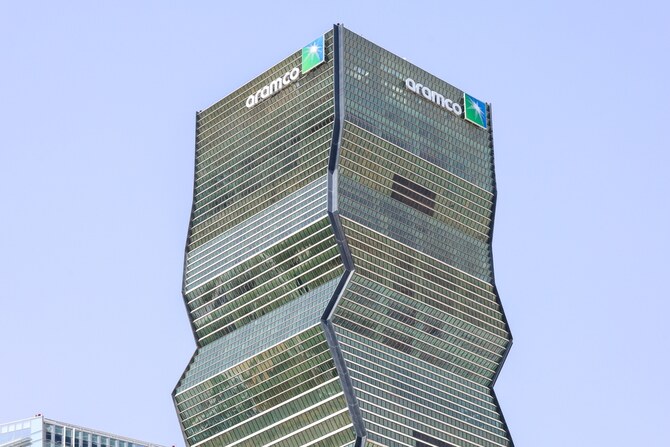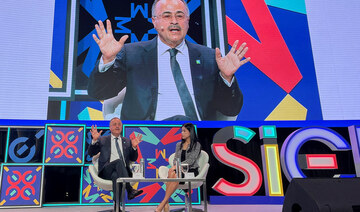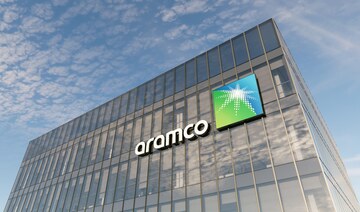RIYADH: Saudi Arabia’s startup ecosystem is gaining momentum, with several firms securing significant investments and partnerships as they scale their operations.
Backed by both local and international venture capital, several startups are positioning themselves as key players in the region’s digital transformation, supporting Saudi Vision 2030’s goals of fostering innovation and economic diversification.
Saudi Arabia-headquartered mobility startup invygo has raised an $8 million series A extension, led by STV’s newly launched NICE Fund.
The round also saw participation from existing investors, including Al Rajhi Partners, Arab Bank Ventures, and SPV, as well as MEVP, and C5.
Founded in the UAE in 2019 by Eslam Hussein and Pulkit Ganjoo, invygo is an app-based service that offers users the ability to choose, drive, swap, and own cars. The company currently operates in Saudi Arabia, the UAE, and Qatar.
To date, invygo has secured over $22 million in funding from regional and global investors. The company is nearing profitability, which is expected by the end of 2024, according to its founders.
“This round comes after 24 months without external capital, a testament to our commitment to building a financially sustainable business that is reshaping mobility. Our focus remains on driving meaningful impact in customer experience and the broader global mobility landscape from the Middle East,” Hussein said.
The recent investment will help further scale its operations in the region as it continues to grow its customer base.
Saudi fintech startup Mala closes $7m pre-seed round
Saudi Arabia-based fintech Mala has closed a $7 million pre-seed funding round, led by VentureSouq and Shorooq Partners.
Other participants in the round include M Capital, BECO Capital, and Access Bridge Ventures, as well as Waad Investment, Palm Ventures, and Silicon Valley-based D Global Ventures.
Mala, founded in 2024 by Musaab Hakami, is a business-to-business platform that offers a procure now, pay later solution for small and medium-sized enterprises, enabling them to access flexible credit terms while ensuring that suppliers receive immediate cash payments.
“Suppliers in Saudi Arabia often struggle to extend adequate credit to buyers, as the traditional system relies more on established relationships than comprehensive credit risk evaluations,” Hakami said.
“Mala harnesses data-driven insights to reshape this dynamic, enabling suppliers to be paid upfront while offering buyers flexible payment options tailored to their needs,” he added.
The funds raised will enable Mala to officially launch its services in Saudi Arabia in the fourth quarter of the year, positioning itself as a key player in the SME financing landscape within the region.
HALA Payments joins Saudi Unicorns Programme
Saudi fintech company HALA Payments has been selected to join the Saudi Unicorns Programme, a government-led initiative aimed at fostering high-growth companies.
Through the program, HALA will benefit from opportunities to attract top talent, expand into new markets, and build strategic partnerships with government entities and global leaders in the fintech sector.
Founded in 2018 by Esam Al-Nahdi and Maher Loubieh, HALA offers banking solutions for SMEs and freelancers, enabling them to seamlessly manage and grow their businesses.
The Saudi Unicorns Programme, part of Saudi Vision 2030, is run by the Ministry of Communications and Information Technology in collaboration with the Mohammed bin Salman Foundation, supporting the country’s efforts to drive economic diversification and digital transformation.
“HALA’s inclusion in this prestigious program reflects our deep commitment to Saudi Vision 2030. As we continue our global expansion, we are not only scaling our business but also contributing to Saudi Arabia’s position as a leader in fintech innovation,” Al-Nahdi said.
“Our mission aligns with the Kingdom’s goals of economic diversification and digital transformation, and we are excited to expand our impact across the MENA region and beyond,” he added.
The program has already seen a few unicorns, which are startups with over $1 billion valuations, graduate. In the fourth quarter of last year, the initiative saw Tabby and Tamara, both buy now, pay later companies, reach unicorn status.
Ronaldo invests in UK-based Bioniq
Football sensation Cristiano Ronaldo has invested an undisclosed amount in personalized nutritional supplements provider Bioniq, boosting its valuation to $82 million.
Founded in 2019 by Vadim Fedotov, Bioniq has recently expanded to Saudi Arabia through a local partnership and now operates in over 70 markets. The company also closed its $15 million series B earlier in July.
“Backing Bioniq goes beyond just an investment opportunity for me— it’s about aligning with a shared vision for health, performance, and longevity,” said Ronaldo.
Prypco raises $10m in seed round
UAE-based proptech startup Prypco has raised $10 million in a seed funding round led by Shorooq Partners, with participation from Apparel Group and other investors.
Founded in 2022 by Amira Sajwani, Prypco offers real estate services through its four verticals, Prypco Blocks, Prypco Mortgage, Prypco Exclusives, and Prypco Golden Visa.
Prypco Mortgage claims it has facilitated home loans totaling over $136 million. The latest $10 million investment will support the company’s growth, focusing on organic expansion across its various product offerings.
“In mortgages, we are currently the second-largest mortgage broker in the UAE,” said Sajwani.
“For fractional ownership, even though we started just three months ago, we are already the third largest in the UAE. When it comes to Golden Visas, we are the largest provider at scale with 600 plus visas, as there are few service providers offering this at our level,” she added.
Best Kept Shared acquires fashion resale platform BAZAARA
UAE-based e-commerce platform Best Kept Shared has acquired peer-to-peer fashion resale platform BAZAARA for an undisclosed amount.
Best Kept Shared, founded in 2023 by Kelly Power and Sophie Kjoller, is a P2P platform for fashion rental and resale, while BAZAARA, founded in 2021 by Alyssa Mariano, focuses on enabling users to buy and sell pre-owned clothing and accessories.
The acquisition will integrate BAZAARA’s existing network with Best Kept Shared’s infrastructure, providing customers with a wider range of options for buying, selling, and renting fashion items.
“This acquisition is a significant milestone in our journey to revolutionize the luxury fashion industry, expanding our market reach and helping more women to access luxury fashion without the designer price tag or environmental impact,” Best Kept Shared founders said in a statement.
The move signals continued consolidation in the region’s fashion tech sector, with platforms looking to expand their reach through strategic acquisitions.
“We are thrilled to be joining Best Kept Shared in this exciting venture. Our shared vision for promoting sustainable fashion and empowering our communities aligns perfectly,” Mariano said.
UK-based Proximie partners with Olympus Corp.
UK-based healthtech provider Proximie has partnered with Japanese surgical tools and endoscopy systems giant Olympus Corp.
The partnership will allow Olympus to offer Proximie’s technology to its customers. The Japanese giant is estimated to have captured 70 percent of the global endoscopy market.
Proximie, founded in 2016, offers a device-agnostic platform which allows for real-time collaboration, to schedule secure training sessions as well as the ability to capture video from any source.


























